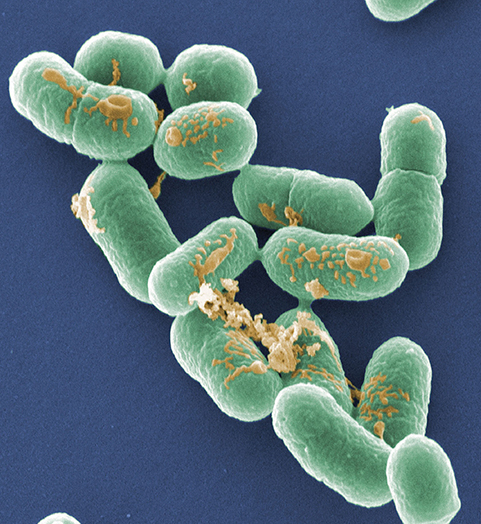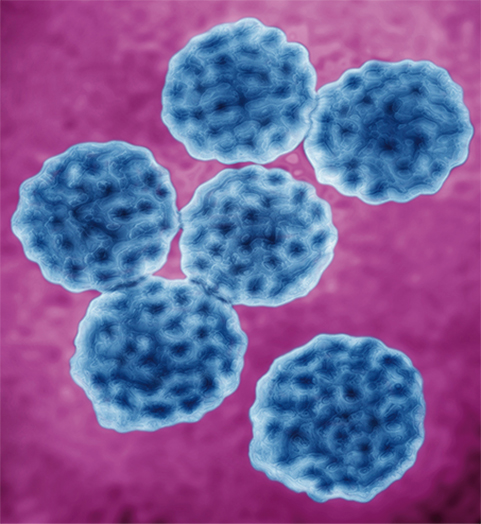Natural Science Unit 3. Health and illness.
Hello everybody!
Merry Christmas and Happy New Year! Here it is the main information of the first part of Unit 3 so that you can study little by little. After Christmas we will complete it with the rest of the Unit.
See you on January!
INFECTIOUS DISEASES
Infectious diseases are caused by harmful organisms called pathogens, such as bacteria and viruses.
The body reacts against the infection causing fever and inflammation, which are symptoms of infection.
An infectious disease is considered contagious if it is easily transmitted from one person to another.
Infectious diseases are treated with antibiotics or antivirals.

NON- INFECTIOUS DISEASES
Non-infectious diseases are not caused by organisms so they can´t be spread from one person to another. They are caused by different factors: environment, unhealthy lifestyle, genetics, vitamin deficiency,...
1. ALLERGY
A reaction that some people have when they come into contact with substances such as dust, pollen, animal hair, antibiotics or certain foods.
- Hay fever: allergy to pollen (very common in springtime).
- Nut allergy: is more serious.
- Asthma: makes breathing very difficult.
2. CANCER
The body's cells begin to develop in a different way and grow uncontrollably, damaging the normal cells.
An early diagnosis is very important to beat cancer.
3. DIABETES
Involves high amounts of sugar within the bloodstream.
Most diabetic patients need to take insulin to control their blood sugar level.
4. MENTAL DISEASES
Alzheimer's disease affect the nervous system.
Another example of mental disease is the depression.
5. HEART DISEASE
 It can be caused by having an unhealthy lifestyle, such as eating fast food or not doing exercise.
It can be caused by having an unhealthy lifestyle, such as eating fast food or not doing exercise.
TIPS TO STAY HEALTHY
1. Eat healthy
It is important to eat a variety of different foods each day to get all the nutrients you need.
You should eat five times a day.
Choose healthy snacks and try to avoid sugary foods and drinks and remember to drink plenty of water.
2. Do exercise
 It is important to do exercise (sport, playing games) regularly.
It is important to do exercise (sport, playing games) regularly.
Exercise makes our muscles stronger, including our heart.
3. Sleep enough

When we sleep the body can repair itself and grow. Sleep also helps the brain develop, so that speech and memory function properly. An 11-year old should sleep for about 10 hours every night.
4. Keep clean
 We wash our body to remove dirt, bacteria and sweat.
We wash our body to remove dirt, bacteria and sweat.
We must wash our hands before eating and after going to the toilet.
We also need to brush our teeth after every meal.
5. Go to the doctor to prevent diseases

Regular medical check-ups help to check that all the body systems are functioning correctly. This is a time to receive the vaccinations that will protect you from certain diseases.
It’s a good idea to have regular check-ups with the dentist and with the optician too.
6. Don't spend too much time in front of screens (Game over!)
Computer games and video games are fun, but they can be harmful if you play them too often. Play them for short periods only, then get up and find something active to do with a friend. It will benefit your body and mind much more than watching a computer screen or television!
7. Avoid bad habits (Say no!)
 Drugs such as alcohol and tobacco are all around us, however they cause serious health problems. Alcohol can affect your brain and smoking can stop you from growing taller. This is why it is illegal to sell alcohol or cigarettes to people under 18.
Drugs such as alcohol and tobacco are all around us, however they cause serious health problems. Alcohol can affect your brain and smoking can stop you from growing taller. This is why it is illegal to sell alcohol or cigarettes to people under 18.
If someone offers you an alcoholic drink or a cigarette, just SAY NO.
We also add the most important definitions to study for the exam (the ones of the Christmas homework):
1. Pathogen: Harmful organism which causes diseases.
2. Fever: A symptom of infection.
3. Vaccine: A dose of the weakened virus or bacteria which stimulates the white blood cells to make antibodies.
4. Painkiller: Medicine that is used to treat pain.
5. Allergy: A reaction that some people have when they come into contact with certain substances, medicines or food.
Merry Christmas and Happy New Year! Here it is the main information of the first part of Unit 3 so that you can study little by little. After Christmas we will complete it with the rest of the Unit.
See you on January!
INFECTIOUS DISEASES
Infectious diseases are caused by harmful organisms called pathogens, such as bacteria and viruses.
The body reacts against the infection causing fever and inflammation, which are symptoms of infection.
An infectious disease is considered contagious if it is easily transmitted from one person to another.
Infectious diseases are treated with antibiotics or antivirals.

- Some harmful bacteria cause diseases such as salmonellosis, tetanus or conjunctivitis.
- Some viruses cause diseases such as flu, chickenpox, common colds, malaria, papilloma or AIDS.
NON- INFECTIOUS DISEASES
Non-infectious diseases are not caused by organisms so they can´t be spread from one person to another. They are caused by different factors: environment, unhealthy lifestyle, genetics, vitamin deficiency,...
1. ALLERGY
A reaction that some people have when they come into contact with substances such as dust, pollen, animal hair, antibiotics or certain foods.
- Hay fever: allergy to pollen (very common in springtime).
- Nut allergy: is more serious.
- Asthma: makes breathing very difficult.
2. CANCER
The body's cells begin to develop in a different way and grow uncontrollably, damaging the normal cells.
An early diagnosis is very important to beat cancer.
3. DIABETES
Involves high amounts of sugar within the bloodstream.
Most diabetic patients need to take insulin to control their blood sugar level.
4. MENTAL DISEASES
Alzheimer's disease affect the nervous system.
Another example of mental disease is the depression.
5. HEART DISEASE
 It can be caused by having an unhealthy lifestyle, such as eating fast food or not doing exercise.
It can be caused by having an unhealthy lifestyle, such as eating fast food or not doing exercise. TIPS TO STAY HEALTHY
1. Eat healthy
It is important to eat a variety of different foods each day to get all the nutrients you need.
You should eat five times a day.
Choose healthy snacks and try to avoid sugary foods and drinks and remember to drink plenty of water.
2. Do exercise
 It is important to do exercise (sport, playing games) regularly.
It is important to do exercise (sport, playing games) regularly.Exercise makes our muscles stronger, including our heart.
3. Sleep enough

When we sleep the body can repair itself and grow. Sleep also helps the brain develop, so that speech and memory function properly. An 11-year old should sleep for about 10 hours every night.
4. Keep clean
 We wash our body to remove dirt, bacteria and sweat.
We wash our body to remove dirt, bacteria and sweat. We must wash our hands before eating and after going to the toilet.
We also need to brush our teeth after every meal.
5. Go to the doctor to prevent diseases

Regular medical check-ups help to check that all the body systems are functioning correctly. This is a time to receive the vaccinations that will protect you from certain diseases.
It’s a good idea to have regular check-ups with the dentist and with the optician too.
6. Don't spend too much time in front of screens (Game over!)
Computer games and video games are fun, but they can be harmful if you play them too often. Play them for short periods only, then get up and find something active to do with a friend. It will benefit your body and mind much more than watching a computer screen or television!
7. Avoid bad habits (Say no!)
 Drugs such as alcohol and tobacco are all around us, however they cause serious health problems. Alcohol can affect your brain and smoking can stop you from growing taller. This is why it is illegal to sell alcohol or cigarettes to people under 18.
Drugs such as alcohol and tobacco are all around us, however they cause serious health problems. Alcohol can affect your brain and smoking can stop you from growing taller. This is why it is illegal to sell alcohol or cigarettes to people under 18.If someone offers you an alcoholic drink or a cigarette, just SAY NO.
We also add the most important definitions to study for the exam (the ones of the Christmas homework):
1. Pathogen: Harmful organism which causes diseases.
2. Fever: A symptom of infection.
3. Vaccine: A dose of the weakened virus or bacteria which stimulates the white blood cells to make antibodies.
4. Painkiller: Medicine that is used to treat pain.
5. Allergy: A reaction that some people have when they come into contact with certain substances, medicines or food.







